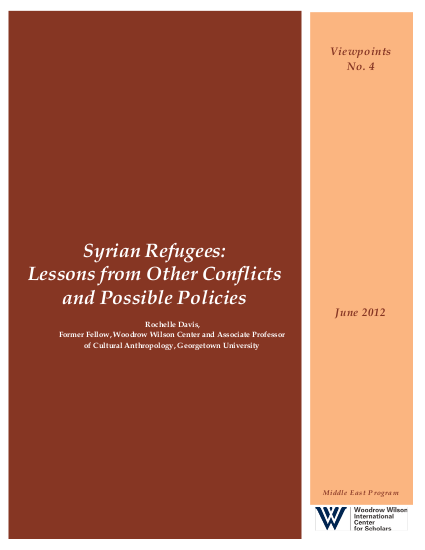Viewpoint Series, No. 4

As the violence and conflict intensifies in Syria, it is important to remember the growing movement of displaced persons and refugees. The recent experiences of Iraqis, Libyans, and Palestinians offer lessons on how to address the needs of internally displaced persons (IDPs) and refugees and how the host countries and the humanitarian aid community can respond in ways that help them without creating further problems.
Immediately aiding those fleeing the violence is one clear way that the international community can provide limited measures of safety and assistance to civilians without wading into the treacherous trap of military intervention. The regime of Bashar al-Assad has proven itself unwilling to halt the vicious attacks on the population and, despite widespread condemnation, continues bombarding neighborhoods and towns as it tries to quell the uprising. The recent revelations that Saudi Arabia and Qatar are helping to fund the Free Syrian Army (FSA) and that the Central Intelligence Agency (CIA) is advising the FSA from southern Turkey indicate that the fighting will continue.1 Any direct military intervention in the country would mimic what took place in Libya: while not necessarily preventing more deaths, it would ensure victory for a side we know little about and do not understand at all. Given the lack of a clear perspective on what is happening on the ground and reports of widespread and serious mistrust of the FSA’s tactics and ideology, ensuring civilian safe areas both inside and outside the country is a well-grounded and necessary project for the international community.
Links
Resource collections
- Topics
- UN Habitat - Urban Response Collection
- Urban Response - Urban Crisis Preparedness and Risk Reduction
- Urban Response Collection - Community Engagement and Social Cohesion
- Urban Response Collection - Economic Recovery
- Urban Response Collection - Environment and Climate Change
- Urban Response Collection - Housing, Land and Property
- Urban Response Collection - Urban Crisis Response, Recovery and Reconstruction
- Urban Response Collection - Urban Resilience